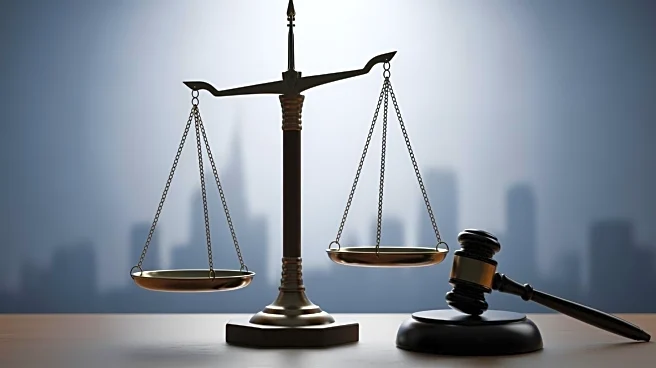What's Happening?
A federal judge in Chicago has extended a temporary restraining order blocking the deployment of National Guard troops to the city for an additional 30 days. This decision comes as the U.S. Supreme Court considers whether to allow the deployment, which
has been a contentious issue under President Trump's administration. The Trump administration is seeking an emergency order from the Supreme Court to permit the deployment, arguing that the current block causes significant harm to the Executive branch. Meanwhile, similar legal battles are unfolding in other cities, including Portland and Los Angeles, where court orders have also been issued to prevent or limit the deployment of National Guard troops.
Why It's Important?
The legal challenges surrounding the deployment of National Guard troops highlight the ongoing tensions between federal and state authorities, particularly in Democratic-led cities. The outcome of these cases could set significant precedents regarding the federal government's ability to deploy military forces domestically, especially in response to civil unrest. The decisions could impact public policy and the balance of power between state and federal governments, with potential implications for civil liberties and the enforcement of domestic laws. Stakeholders such as local governments, civil rights groups, and federal authorities are closely monitoring these developments.
What's Next?
The Supreme Court's decision on whether to allow the deployment of National Guard troops in Chicago is pending and could influence similar cases in other cities. Legal proceedings in Portland and Los Angeles are also ongoing, with appeals courts set to hear arguments and issue rulings. The outcomes of these cases will likely prompt reactions from political leaders, civil society groups, and the public, potentially leading to further legal challenges or legislative actions.
















